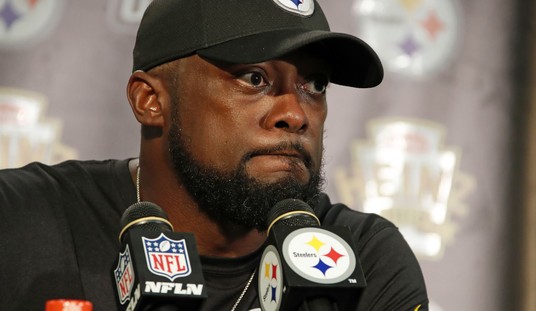My friend William F. Buckley Jr., who died at the end of February 2008, would have turned 84 today. I won’t say anything here by way of reminiscence, but merely note the continuing pertinence of his central political concerns.
In the summer of 1951, when Bill was in his middle twenties, he wrote a piece for Human Events in which he limned two critical dangers facing American liberty: the external threat of Communist imperialism and the homegrown threat of “government paternalism.”
I would argue that the fall of the Soviet colossus signaled not the end but the metamorphosis of the former threat, its distribution over a more amorphous field of action. The latter threat, it will be obvious to anyone with eyes to see, has gone from crisis to crisis. The threat of government paternalism is today more patent than ever, as anyone who has tried to buy an incandescent lightbulb or who has had an up-close and personal encounter with a TSA representative at the airport well knows.
Indeed, government paternalism, a.k.a., the proliferation of misguided bureaucratic regulation (a.k.a., the rise of soft-totalitarianism of the sort Tocqueville described in his famous passages on “Democratic Despotism“), is on the march, with sad, disturbing consequences for the body politic. At Instapundit today, Glenn Reynolds links to this sobering video from “Bankrupting America.” Watch it. Then wonder why Nov 2nd wasn’t even more of a victory for the tea partiers.
I know that Bill Buckley loathed all that government intrusiveness. His opinion of what went on in airports was, if anything, even more disparaging than mine. And of course he would have been outraged if confronted with the peek-and-pat procedures just rolled out by our hapless Department of Homeland Security.
Nevertheless, I believe Bill would have been greatly heartened by what happened a couple of Tuesday ago. And would, I feel sure, have wholeheartedly endorsed the observations Glenn Reynolds made about the new TSA procedures in his Popular Mechanics column. Is the intrusiveness legal? Yes. Is it a good thing? Hardly.
Reynolds makes a few key points. In the first place, quoting the economist Steven Horwitz, he notes that “stepped-up air security might cost more lives than it could save, by encouraging large numbers of Americans to drive — which is vastly more dangerous — where they otherwise would have flown.”
Even more pertinent, however, is his observation that “the only time a terrorist attack on a U.S. airliner has been defeated (as opposed to fizzling when a shoe bomb failed to detonate) was on Flight 93. That’s when the passengers themselves took action.”
Exactly. “Security,” as Reynolds notes, “has always been about everyone, not just the professionals. … To fight terrorism, we need a populace that is informed, motivated, vigilant and prepared, not one that is seething and feeling powerless and resentful. Yet our current security approach seems almost designed to produce the latter, rather than the former.”
Here’s the take-away from his column: “Terrorism is a widely dispersed threat, hard to pin down, constantly evolving in approach. It can only be countered by something else that’s widely dispersed, capable of quick change, and dedicated to success. Luckily, we have something like that. It’s called democracy. Let’s use it.”
Use it, friends, or lose it. We’re at a crossroads. November 2nd showed that we needn’t go like sheep down the road to serfdom. Let’s hope that a critical mass of citizens hearken to Bill Buckley’s advice from 1959.
“What,” he asked, “is the indicated course of action?” What should we do. Call it, Bill said, “a No-Program, if you will.” It revolves around the effort to “to maintain and wherever possible enhance the freedom of the individual to acquire property and dispose of that property in ways that he decides on” and to deal with problems like unemployment “locally, placing the political and humanitarian responsibility on the lowest feasible political unit.”
“I will not,” Bill wrote, “cede more power to the state. I will not willingly cede more power to anyone, not to the state, not to General Motors, not to the CIO. I will hoard my power like a miser, resisting every effort to drain it away from me. I will then use my power as I see fit. I mean to live my life an obedient man, but obedient to God, subservient to the wisdom of my ancestors; never to the authority of political truths arrived at yesterday at the voting booth.”
To which I will only add, Amen.









Join the conversation as a VIP Member